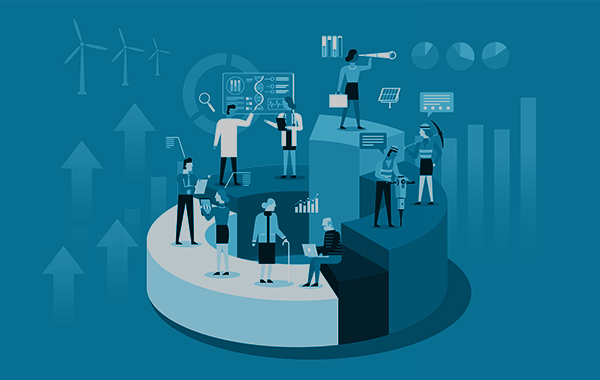Sustainable economic growth requires inclusive growth. An economic growth that is properly distributed over the society is called Inclusive growth. As per OECD (Organisation for Economic Co-operation and Development), inclusive growth is economic growth that is distributed fairly across society and creates opportunities for all.
It creates an equal opportunity scenario for all parts of society. Inclusive growth creates an opportunity to reduce the poverty in society and increase well-being. The inclusive growth approach takes a longer-term perspective.
Elements of Inclusive Growth are skill development, financial inclusion, technological advancement, economic growth and social development. Poverty, unemployment, agriculture backwardness, issues with social development and regional disparities are key challenges in achieving inclusive growth.
In the Inclusive Development Index (IDI) compiled by the World Economic Forum (WEF), India ranked 62 out of 74 emerging countries and was among the least inclusive countries in Group of 20 (G-20) countries. Over the past two decades, India’s contribution to global economic growth has doubled to almost 15%.
Further, income poverty levels have declined, resulting in 133 million people being lifted out of poverty in the past 20 years. However, nearly 300 million people still live in extreme poverty.
From the Book – ‘ Know Everything about Corporate Social Responsibility ‘
Available on Amazon.in
Also Read:
- What is Crony Capitalism?
- What Is Capitalism?
- What is Socialism?
- What is Free Enterprise?
- What is Third World?
- What is the Fourth World?
- What is Sustainable Economic Growth?
(India CSR)







